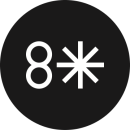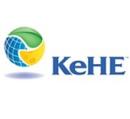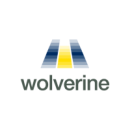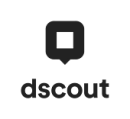Refreshing stagnant job boards, receiving hundreds of overdue rejection emails, undergoing personality metamorphosis for every single stuffy interview, dressing to perfection for 20 minutes of Zoom screen time.
The truth of the matter is that hunting for a new job is a full-time job in itself. Long before accepting an offer letter — or before those highly coveted company benefits roll in — the process of getting hired requires determination, flexibility and thorough research to determine a good fit for your skills. But what if you knew it was possible to land a dream role that wasn’t too good to be true, simply by aligning your passions with a company’s mission and letting your personality shine through?
For the following nine Chicago engineers, that was exactly the case. Read on to hear how these individual contributors got the job they wanted — and why they picked their current company.

8th Light is a software consultancy that serves a wide range of organizations, from startups to Fortune 500 companies.
What attracted you to apply for a role at your current employer in the first place?
I first heard of 8th Light from former colleagues who’d found their way there before me. They had great things to say about the work and work culture. When I announced to friends that I was starting to consider new opportunities again, they quickly reached out. Those personal connections, and more importantly testimonials, made it an easy decision to begin the application process.
That said, I didn’t know a whole lot about the company at that time. I quickly learned that apprenticeship and internal promotion was a core aspect of the 8th Light way. That’s a stark contrast with most of the companies I’ve worked for over the years, where training and career advancement were largely left to the ambition and savvy of individual employees. 8th Light stood out as a place that could bring out the potential of all employees.
Likewise, it struck me in my conversations how often it came up that 8th Light cares about finding the right project fit for every contributor, and adjusting as time progresses. This has borne out in my first months with the company. Again, I’m more used to a situation where only a select few employees are catered to and everyone else is moved about like chess pieces.
Which skill or experience do you think helped distinguish you during your job search?
I imagine I looked good on paper due to the breadth and depth of my experience in web application development and operations. I think having also done a bunch of cloud architecture work in particular stands out because it’s an in-demand specialty that’s hard to acquire outside of your daily duties.
As for how I distinguished myself in the interview process, I’d like to think that it was through my ability and willingness to think both out loud and in code or tests. I’m not much of a 10x Leetcoder, but I think I can excel in crafting slightly less performant code a bit slower — leaving anyone that inherits the code with higher confidence of what it does, how it does it, that it is correct and that it handles the complexity that it needs to.
Part of that is inviting whoever I’m pairing with into my thought process and taking their cues on what I might not be as firm on as I had previously thought. Come to think of it, I hadn’t ever considered how well pair programming can prepare someone for technical interviewing.
It’s fun to see the immediate impact of our changes rather than hoping that they will be useful in some unspecified future.”
What do you enjoy most about developing your company’s technology, and what do you find most exciting or challenging?
I’ve been enjoying getting into the nitty-gritty of my current client’s main product. We’re building an information product for an industry that I’ve never worked in, so I have to build up this new vocabulary and understanding in order for my software features to have the desired effects. The business is fast-growing and we’re “building the plane while flying it,” so it’s fun to see the immediate impact of our changes rather than waiting and hoping that they will be useful in some unspecified future.
But this is just one project. The fun thing for me about working at a company like 8th Light is that if and when I start to get the itch for new challenges, there’s an easy mechanism to switch things up without upending everything about my work life. The company has a mature and active process for re-pairing engineers to new projects not just when clients’ needs change, but when those engineers’ aspirations evolve. And, since the company is in a sweet spot of “not-too-small, not-too-big,” I can work with different people while still maintaining and strengthening connections with everyone I’ve interacted with along the way.
Level Ex creates educational video games for physicians, including dermatologists, cardiologists and anesthesiologists. The games can also earn the doctors who play them continuing medical education (CME) credits.
What attracted you to apply for a role at your current employer in the first place?
After graduating, I spent a few years taking odd jobs while applying to any software or game development job I could find. I was being ghosted by about 80 percent of recruiters despite the effort I spent custom-tailoring applications and changing myself to fit what I thought companies wanted from applicants. It was dehumanizing to spend so long applying for positions I’ve spent years studying for and not get a single grain of input. I lost a lot of self respect and decided my survival couldn’t rely on getting hired, and the only thing I had control of was my own projects. I decided to keep learning and applying, and in the end I determined I would pass the threshold of desirability, make it on my own, or crash and burn after giving it everything.
In comes Level Ex. I had just rewritten my resume to be more “me,” and a week later I got a response. I took a coding test and had several more interviews where I could tell everyone loved their work and treated me with respect. My unique experience was appreciated and allowed to shine, and that was when I decided I had to work at Level Ex. I never thought I’d have the opportunity to work at a job with such great people — while doing what I love.
Which skill or experience do you think helped distinguish you during your job search?
Personal projects were all I had. I turned my back on computer science for fine art in college, because the art world had the humanitarian qualities I needed to be a better person. I needed a community that accepted me more than I needed technical skills.
Honestly, I learned more playing around in Unity at home than I ever did in computer science classes, but applicant tracking systems don’t ask why an applicant doesn’t have a CS degree. I learned programming from an artist's perspective, and having visual, interactive projects helped drive interest more than the GitHub repositories ever did.
Aside from coding skill, I’d like to think the empathy, self expression and communication skills I developed from working as an artist helped at least a little bit.
Medical science is incredibly complicated, and it’s amazing I get to help make that industry more accessible through game design.”
What do you enjoy most about developing your company’s technology, and what do you find most exciting or challenging?
Medical science is incredibly complicated and interesting, and it’s amazing I get to help make that industry more accessible through game design. Education and simulation are endless rabbit holes of complexity and have different paradigms compared to regular games, and the developers at Level Ex know how to balance accuracy and enjoyability in their projects. Interactive educational content works better when users are enjoying themselves, after all. I’m happy my game development skills get to be used for something that is truly helpful.
KeHE Distributors sells natural, organic, specialty and fresh food products. The Certified B Corporation works with more than 5,500 employee-owners and has 16 distribution centers across the U.S.
What attracted you to apply for a role at your current employer in the first place?
There were a bunch of things, but the top two are the tech stack and the people.
Most people think of KeHE as a food distribution company but it’s also a tech company. When I first set out on my search I wanted to work with Angular in Typescript, and that’s what KeHE’s new platform is being built with. Also, the idea of building out entirely new features was something I wanted to be a part of.
KeHE is an employee-owned company with some amazing company values. On top of that, I can honestly say I really enjoy meeting everyone I work with, and that started even before I applied. As a transgender man, that’s not always the case and I feel lucky to have found a truly welcoming workplace.
Which skill or experience do you think helped distinguish you during your job search?
I really love learning. The only thing that is guaranteed when you’re working on something new is that you’re going to run into stumbling blocks, and while that can be frustrating, each one is an opportunity to learn. I think having that positive outlook and passion for learning makes me an asset to any team.
As a transgender man, that’s not always the case and I feel lucky to have found a truly welcoming workplace.”
What do you enjoy most about developing your company’s technology, and what do you find most exciting or challenging?
Something I really love about my work is that I am given the opportunity to take on more responsibilities. I’ve mostly worked on the front end of applications and recently I've been taking on more back-end work. It’s been both exciting and challenging to develop a new set of skills.

Wolverine Trading operates a portfolio of companies specializing in prop trading, asset management, order execution services and tech solutions.
What attracted you to apply for a role at your current employer in the first place?
I wanted a software engineering job where I had to really think about what each line of code is telling the computer to do. At Wolverine Trading, I knew they cared a lot about performance, and whenever a company cares a lot about performance, the engineers have to understand how the computer works to make the most performant code.
While knowledge of operating systems, networking and hardware is abstracted away for a lot of companies’ software engineers, this is vital knowledge for Wolverine Trading’s teams to create high performance trading systems. I wanted a job where it mattered to understand how the computer works.
I also wanted to work on complex projects, and whenever performance is high priority, the complexity of the projects increases and makes for a much more interesting project. The projects at Wolverine Trading have not disappointed.
Which skill or experience do you think helped distinguish you during your job search?
I think the systems classes I took at the University of Michigan really helped distinguish me from other candidates. I was able to take an operating systems class, a computer networking class and a distributed systems class; not many people are able to complete all three of the systems classes at UM.
Each of those gave me a new perspective on how computers worked and how to design complex systems where computers can interact with each other to do amazing things. These classes gave me the opportunity to learn advanced computer science topics and how to design complex systems which isn’t something that many students get to learn in a classroom setting.
I felt like I was a detective, using a bunch of tools in combination to catch the bug.”
What do you enjoy most about developing your company’s technology, and what do you find most exciting or challenging?
I really enjoy how much impact each project that I’ve developed here has had. My first project was to rewrite our whole feed handler for the Toronto Stock Exchange to improve its performance, with help from my manager. The feed handler is the first part of our trading system, so its speed has a large effect on the speed on the whole system. After a couple months of developing, collaborating, optimizing and validating this, we made a feed handler that was about five times faster than the previous one.
Being able to take ownership of a complex project with a high impact was a really rewarding experience. The most challenging thing I’ve done in my short time here is debugging my feed handler. I worked with a senior engineer to strategize complex ways to catch the bugs. GDB, or print debugging, alone would not suffice. I used TCP capture tools to capture the packets at different times in the day, modified and replayed the packets, and I also used GDB, log statements, external data monitoring tools and metric tools to debug the system. The final bugs in a complex system are the trickiest, but also the most fun. I felt like I was a detective, using a bunch of tools in combination to catch the bug.
Relativity is a compliance and legal tech company creating software solutions to manage legal data and pinpoint issues.
What attracted you to apply for a role at your current employer in the first place?
What attracted me the most to this job was the community and culture within Relativity. In reviews from places like Glassdoor, there were always mentions of how friendly and willing to help the people at Relativity are. There were also a lot of mentions for growth opportunities which is a huge plus for me too, as this is my first job out of college.
Which skill or experience do you think helped distinguish you during your job search?
I didn’t have any professional experience when I applied to Relativity, but my best guess would be because I am a hard worker and fast learner.
Getting so much help from someone who wasn’t even on my team greatly influenced my decision to work for Relativity.”
What do you enjoy most about developing your company’s technology, and what do you find most exciting or challenging?
What I enjoy most about developing for Relativity is the fact that I am learning something new every day. Whether it’s a new technology or a coding practice that I never really learned in school, I feel that every day I gain more skills that make me a better engineer.
What I find the most exciting are all the opportunities for professional development that are here at Relativity. During my internship here I remember having to work with a part of the code base that no one on my team had experience with. I ended up asking someone from a different team to help me out and this person put a lot of effort into trying to help me figure out my issue. They were very responsive in Slack, and they even set up a Zoom meeting with me to do live coding and debugging. Getting so much help from someone who wasn’t even on my team greatly influenced my decision to work for Relativity.
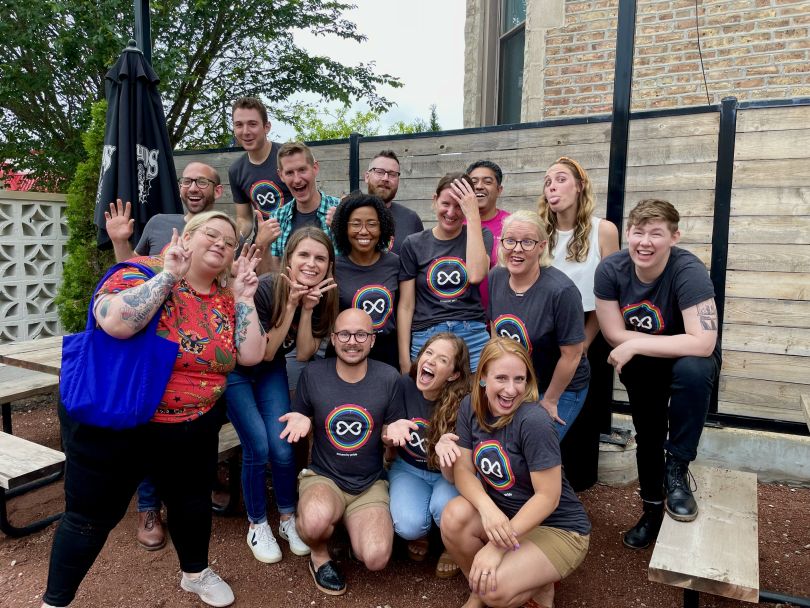
Sittercity connects busy parents in need of child care with qualified babysitters nationwide.
What attracted you to apply for a role at your current employer in the first place?
When I was applying for iOS engineer roles, Sittercity immediately caught my attention because I resonated with its mission of helping parents find quality child care. When I went through the application process, everybody was kind, caring, smart and willing to help, and this matches the culture I’ve found as an employee. My colleagues work extremely hard to understand parents’ needs and develop technologies to match those needs. Everyone also genuinely cares about creating a strong team and maintaining work-life balance.
Which skill or experience do you think helped distinguish you during your job search?
I worked as a teacher, education administrator and IT business analyst before I earned my Master of Science in software engineering and made a career shift into software development. In addition to my technical skills, these experiences allowed me to leverage my unique skill set in communication, project management and human development.
Also, I have published apps on the App Store and Google Play Store. That includes Elevate Chicago, an app which helps people know which elevators are working on Chicago CTA trains — particularly helpful for people with physical disabilities.
I tried to distinguish myself during my job search by my eagerness to jump in, roll up my sleeves and make a difference right away. I love making a business impact; during my first week at Sittercity, I made a UI improvement that led to a measurable increase in NPS scores. It felt great to be able to contribute to the team from the beginning.
I have a tremendous amount of autonomy, as well as support from leadership, to continuously develop my skills and knowledge.”
What do you enjoy most about developing your company’s technology, and what do you find most exciting or challenging?
As part of a two-person iOS team, it’s exciting to get to work on all parts of the iOS application. On any given day, you will find me building out new features, doing performance tuning, improving CI/CD workflows, writing tests or hunting down bugs, just to name a few of my responsibilities.
I also get to work closely with the design team. Recently, I prepared the entire app for dark mode, which was an interesting challenge. I have had the opportunity to work on back-end projects and cutting-edge iOS technologies such as SwiftUI and Combine. I have a tremendous amount of autonomy, as well as support from leadership, to continuously develop my skills and knowledge. It’s an incredibly fun time to be part of the Sittercity team!

West Monroe is a national business and technology consulting firm that works across healthcare, retail, private equity and more.
What attracted you to apply for a role at your current employer in the first place?
Initially, I joined West Monroe as a six-month contractor with their internal IT team. The experience gave me unique access to the consultants who specialize in the technologies I work with and insight into West Monroe’s culture, so when an opportunity to apply for a permanent position serving their clients came up, I jumped.
As a veteran in the IT industry for more than 17 years, I have learned that it is not always easy to find tech professionals with emotional intelligence, humility and good leadership qualities. I was pleasantly surprised by the lack of egos and abundance of collaboration among even senior technical resources at West Monroe. I’ve also been impressed with the genuine efforts in diversity, equity and inclusion (DEI) shown by leadership. I learned more about DEI in those six short months with West Monroe than I have the entire rest of my career.
As the mother of two young children and the primary caregiver for my elderly father with Alzheimer’s, I am also very grateful for West Monroe’s flexible time off policy.
Which skill or experience do you think helped distinguish you during your job search?
My extensive experience as a consultant, as well as my deep technical knowledge and subject matter expertise within the Microsoft space.
As the mother of two young children and the primary caregiver for my elderly father with Alzheimer’s, I am also very grateful for West Monroe’s flexible time off policy.”
What do you enjoy most about developing your company’s technology, and what do you find most exciting or challenging?
I love that I am finally getting the opportunity to participate much more in the sales and business development side of the company. It is something I have always believed I would excel at, but I struggled to secure a seat at the table with previous employers.
I am also grateful and proud of the leadership support for DEI at West Monroe. We still have a lot of work to do in that space, especially in the tech practice, but it’s exciting to see West Monroe making a strong commitment.

tastytrade is a financial services company focused on supporting self-directed investors and the active trader community.
What attracted you to apply for a role at your current employer in the first place?
Initially, I didn’t know a lot about tastytrade — I met a representative at my university’s career fair and applied on the spot. However, the more people that I met through the interview process, the more interested I became in the company. Ultimately, I knew I was looking for a welcoming environment where I would be challenged, but also provide value to the team.
Which skill or experience do you think helped distinguish you during your job search?
Through my previous work experiences, I’ve learned that employers and co-workers enjoy working with someone who has strong communication skills and a willingness to learn. During my interview, my future manager made a point to convey that it was more about the process of getting to the answer rather than the answer itself.
Ultimately, I knew I was looking for a welcoming environment where I would be challenged, but also provide value to the team.”
What do you enjoy most about developing your company’s technology, and what do you find most exciting or challenging?
I am currently on the front-end app development team and I really enjoy my work. Because tastytrade is a relatively small company, I am able to make an impact on the end product. Even after two short months being at the company, I’ve already written code that has gone to production. I have also worked with a number of people both inside and outside of my team.

Dscout’s research platform helps customers gather, manage, share and analyze millions of in-context moments submitted by people around the world.
What attracted you to apply for a role at your current employer in the first place?
Dscout’s job description for Elixir engineers drew me in. I’d been working in Elixir for years using the same technologies and libraries they use, including Phoenix, Absinthe, Ecto and Postgres. So I believed I’d be able to get up to speed very quickly while learning the domain. Other things resonated with me, too: real-time collaboration, technical quality, property-based testing, using graphs for flows, cross-functional teams and a growth mentality.
Finally, it referenced complex video processing and using Oban for asynchronous work. I didn’t have experience with either, but video processing intrigued me and I had heard very good things about Oban. Additionally, I had heard good things about the maintainer of Oban, Parker Selbert, who works at Dscout.
Once I began interviewing, I found everyone to be very personable. The company seemed like it was in an interesting space and in a good place with a successful product.
Which skill or experience do you think helped distinguish you during your job search?
I think my experience with Elixir and associated libraries helped me stand out. Most of the engineers writing Elixir at Dscout had learned it while at Dscout, and were interested in different, external perspectives. I also think they were looking for someone who wasn’t just a pure coder, and my interests in teaching, mentorship and community contribution helped. It also might have helped that I had some cross-functional team and architectural experience.
There’s an emphasis on learning, growth, building better and better products, and that goes all the way down into the technology.”
What do you enjoy most about developing your company’s technology, and what do you find most exciting or challenging?
The thing I enjoy most about working at Dscout is undoubtedly the fantastic people and culture. There’s an emphasis on learning, growth, building better and better products, and that goes all the way down into the technology. The most exciting work right now is in improving real-time collaboration and communication for our users. The most challenging work is in video streaming and processing. Things get a lot less simple when there’s video involved.




